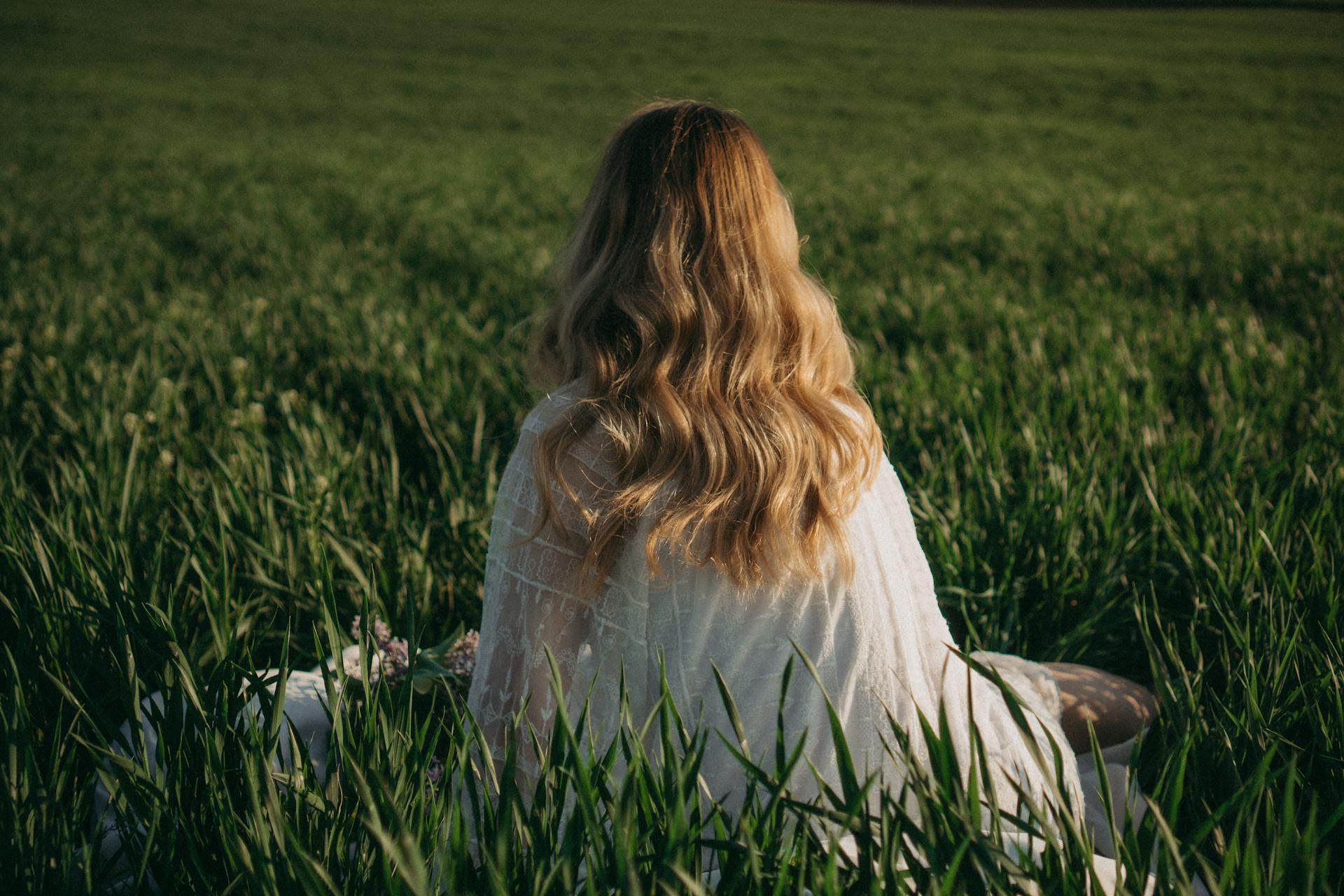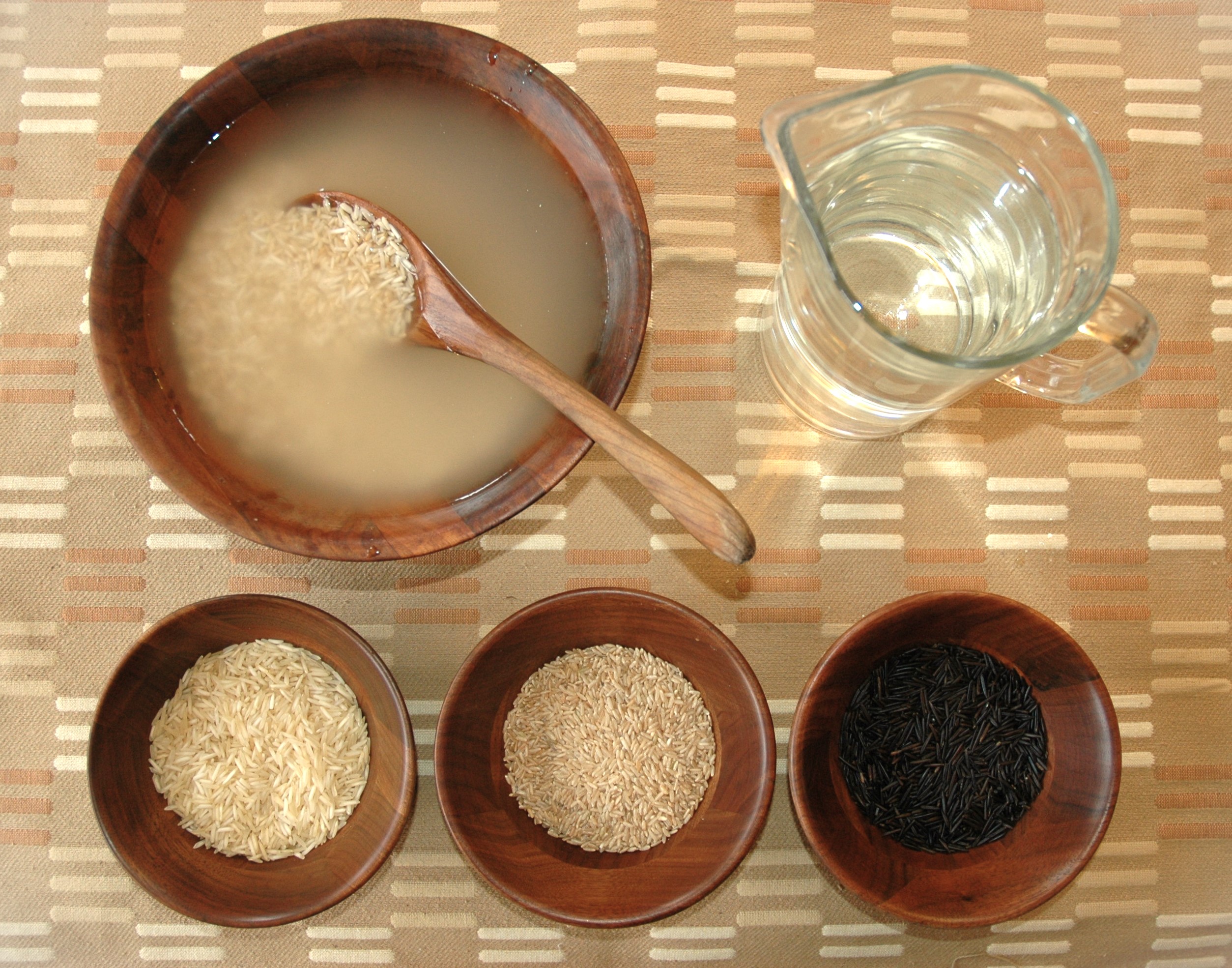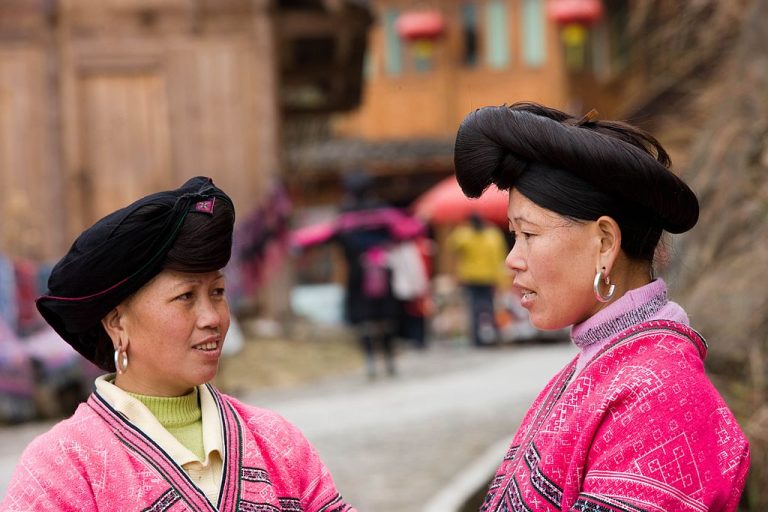At last, the ancient secret to long and luxurious locks has made its way to TikTok. Rice water, historically used to bathe and nourish black and beautiful Asian hair, is rapidly gaining popularity as a means to lengthen, strengthen, and rejuvenate all manner of manes around the world.
While it is always recommended to rinse rice before cooking, many traditional cultures soak it as well. The water strained off is full of starch and nutrients, which, if we don’t wash them down the drain, can benefit our hair. Today we’ll explore how to use rice water for healthy hair, and why it works.
Rice water in history
Surviving communities of the ancient Yao minority in China include the Red Yao People of Huangluo Village, Longsheng, Guilin — known as the “long hair capital of the world.”
According to tradition, the Yao women carry on their heads not only some six feet of jet-black hair sprouting from their heads, but also the several feet that were cut off when they were ready to marry at 16, as well as the odd strands that are shed and collected. These women credit a traditional rice water treatment for the remarkable length and enduring color of their hair.
The Chinese may have been the first to discover the benefits of rice water for healthy hair, but the Japanese weren’t long to follow. This liquid was used to supplement hair as early as the Heian period (794 — 1185), when women of the imperial court would wear their floor-length glossy black hair down — a style called kurokami.
How does rice water work

Success
You are now signed up for our newsletter
Success
Check your email to complete sign up
Soaking rice before cooking is said to enhance digestibility of its nutritional elements — which include amino acids, antioxidants, B vitamins, inositol, minerals, starches and vitamin E. Traces of these nutrients go into the soaking water, making it a nourishing wash for hair, and skin, as well.
While scientific studies have yet to prove its effectiveness, anecdotal evidence is abundant. To make sense of this phenomenon, we can look at some of the individual nutrients that rice water offers.
According to trichologist Gretchen Friese, rice water “contains eight of the 18 amino acids that create the protein that grows hair (keratin), and those amino acids combined with the antioxidants could potentially affect hair regeneration.”
Vitamin E is said to promote blood circulation, which, when applied to the scalp, may help prevent hair loss. B vitamins promote healthy cell rejuvenation and are often recommended to boost hair growth. Inositol, as a component of cell membranes, may improve the strength and structure of individual strands.
The starch in rice water, however, can go either way. Many will find it healing and restorative, but it can also exacerbate some dermatitis conditions or lead to dry, brittle hair for those with fine hair to begin with. Fermenting the rice water first may alleviate these issues by converting the starches and increasing the antioxidant content.
Proponents of rice water claim that it decreases the propensity to tangle, improves strength, texture and appearance, and increases growth of hair.
How to make rice water

With its growing popularity, rice water has become commercially available in the form of pricey toners, cleansers and serums; yet anyone who makes rice at home has unlimited access to easy rice water.
Use organic rice and filtered drinking water. White rice will yield the most starch, while brown and wild rice contain more of the other nutrients. You can also mix your rices.
- Rinse your chosen rice to remove impurities.
- For each cup of rice add 5 cups of soaking water.
- Stir gently for a few minutes to release nutrients.
- Allow the rice to soak (30-60 minutes for white rice, or overnight for brown).
- Strain the water off into a cooking pot (at this point you can cook the grains as normal and enjoy).
- According to Yao tradition, citrus peels are added to improve the effects and the scent of fermented rice water. Use one whole orange peel per five cups of water.
- Over medium heat, boil the rice water with peels for 10 minutes.
- Allow the rice water to cool, then pour into jars for fermentation. You can distribute the peels in the jars or discard them.
- To ferment the water, allow the jar to sit, loosely covered, for three days at cool to room temperature, out of direct sunlight.
Using rice water for healthy hair
Yao women use rice water alone to wash and condition their hair. The treatment can vary from one one-hour application per week during the colder months, to a 20 minute application every two to three days during the summer.
- First, detangle your hair with a wide-tooth comb.
- Hang your hair over a large bowl, and begin by wetting the ends with rice water.
- Wet and massage the water into the hair as you gradually work your way up to the roots (the water in the bowl can be re-applied to wet and massage the scalp if you run out).
- Gently twist your hair around your head and secure it with a comb. You can cover it with a shower cap and a warm towel, but the Yao women do not.
- After 20 minutes to one hour, rinse the hair thoroughly (until the water runs clear) with filtered water.
Alternative applications for rice water
Fermented rice water can also be used to make other natural, hair-care products.
- For a simple hair-growth stimulant, simply combine fermented rice water with 1 tbsp. castor oil in a small spray bottle. Apply to the scalp and leave it on for 30 minutes to several hours before washing the hair.
- For a strengthening rinse, freeze a portion of your fermented rice water in ice cube trays. After regular washing, rinse with two rice cubes dissolved in two cups of filtered water. Massage in and let it sit for five minutes before rinsing lightly.
- For a conditioning mask, blend 3 tbsp. fermented rice water with 2 tbsp. cooked rice and 1 tbsp. coconut oil. Massage into hair and scalp 30 minutes before washing.













